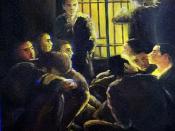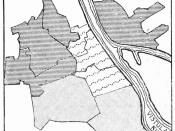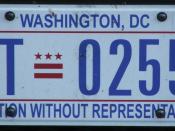With the birth of the New World, governments began to take shape and ideas began to form. Democracy was soon to come, but just how soon?
Religion was a major predicament in the late-1700s. A Separatist minister was sent to jail in 1745 because he was preaching in Wethersfield without permission. This is saying that Separatism is inferior to that of other religions. And the town's requirement of its people to support Protestant ministers in 1775 only pushes the idea that Protestants are superior to others. Because freedom of religion was granted to only those who attended a church of their choice, atheists were a bit out of luck. And all the while, ministers were granted tax breaks. Although the tolerance level for religious diversities grew by 1780, there was still much to be done in ways of democracy.
On the flip side, politics seemed to resemble democracy more and more as the time passed.
Elections were more frequent, there was more local control over local matters, and the idea of "no taxation without representation" was brought up; all of this occurred in 1775. Between 1771 and 1776, more adult white males began registering and voting. Men of lower social status also had more of a chance to hold major town offices. The militia also chose their own officers. There seemed to be a secure growth of interest and participation in local politics. Democracy, however, was not yet in full swing -- the rich were still in charge, for the most part, and a mob had even forced a tax collector to resign -- but it was just over the horizon.
Seeing as how the majority of the men who migrated to the New World were farmers, land and its value was of dire importance to the people of...


